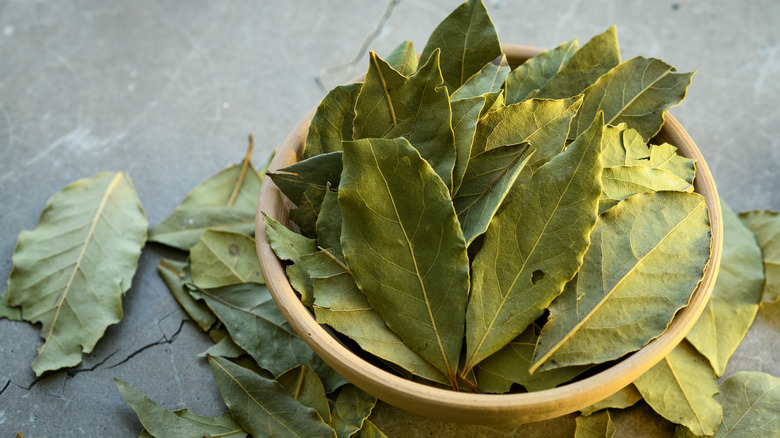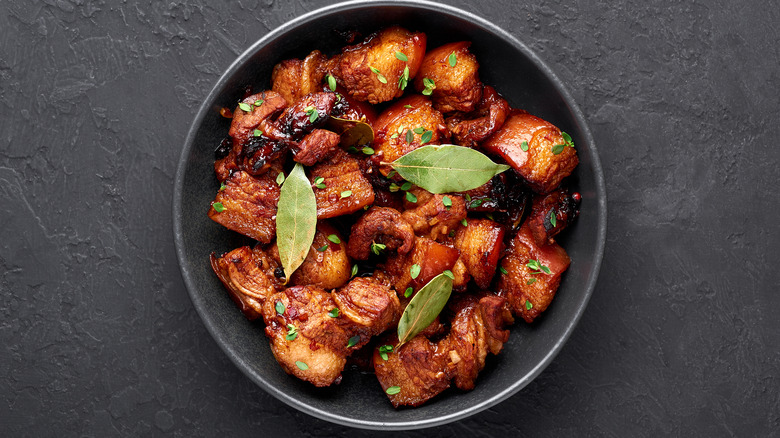How To Tell When Bay Leaves Should Be Thrown Out
Bay leaves are a spice cabinet staple. There's no chopping, dicing, grinding, toasting, or other prep required to use them. Just take a bay leaf from the jar and toss it into a soup or sauce and you're done. After a while of cooking, their warm and minty, sometimes edging on bitter, flavor will add easy depth to your favorite dishes. You can even use bay leaves as a substitute for curry leaves. Bay leaves have been a favorite ingredient for hundreds of years.
However, just because bay leaves are easy to use that doesn't mean they're as straightforward and unassuming as you might expect. As TODAY writes, this simple ingredient comes with a lot of nuances depending on how you treat it. For example, the longer you cook a bay leaf in some sort of liquid, the better it'll taste. You'll also get more flavor from fresh bay leaves than dried ones, and whole bay leaves aren't as pungent as ground bay leaves. The dried, whole leaves are still the most popular, though, because it's incredibly easy to overdo the flavor (and make your food bitter as a result) with fresh or ground leaves. Additionally, treat your bay leaves wrong or not pay attention to how you're using them, and you may end up with a bay leaf that does nothing at all — meaning you should throw them out.
When to throw out bay leaves
So how do you know when it's time to toss your bay leaves and how can you make them last longer? According to the Washington Post, dried bay leaves can start to go bad after about six months in your spice cabinet. However, they're not really "bad" per se. Throwing an older bay leaf into your chicken stew isn't going to hurt you; you just might not get any of that bay flavor you're looking for. Dried bay leaves slowly lose their aroma — and thus their flavor — over time.
The easiest way to check whether or not your bay leaves are past their prime? Just crumple one in your hand. If you can smell it, it's good to go. If not, toss the whole container. If you want your bay leaves to last as long as possible — a year or more — the Washington Post recommends storing them only in an airtight vessel.

